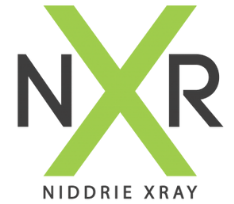What is CT Calcium Scoring?
Coronary artery disease is a leading cause of death in Australia, so finding which patients are at risk of coronary artery disease, is an important consideration. Calcium in the coronary arteries almost always indicates arterial disease or atherosclerotic plaque, but bears relationship to plaque stability or instability. Cardiac risk factors and insulin resistance contribute to coronary artery calcification.
Coronary artery calcium scoring (CACS) is a non-invasive test that estimates the amount of coronary artery plaque, by assessing the extent of coronary artery calcification using high-resolution CT. While a calcium score of ‘zero’ does not rule out arterial disease, there is a low likelihood of significant coronary blockage. A high calcium score correlates with a moderate to high risk of a coronary event, or heart attack, within two to five years.
CACS has a high negative predictive value (up to 98%), which means if your calcium score is low then this correlates very well with you having a low risk of coronary artery disease. Coronary artery calcium scanning is not as useful in patients who have a low or very high risk, or in those with known coronary artery disease.
Possible reasons for requesting CACS include:
- Screening asymptomatic patients
- Screening patients with intermediate risk of coronary artery disease
- Presence of one risk factor such as hypertension
- Strong family history of early coronary artery disease
Patients with diabetes or chronic kidney disease could have high calcium scores, which might not correlate with significant coronary artery disease.
Medicare does not provide patients with a rebate for CACS.
What happens during a CT Calcium Score?
A. Before your scan
What to bring
- Your request form
- Any relevant previous imaging
- Your Medicare card and any concession cards
Preparation - Day of the scan
B. During your scan
Scan
You will be made comfortable on the CT examination table and our technician will connect you to a ECG (electrocardiogram) heart monitor. Your heart rate will be monitored until it is at rate low enough for the scan to be performed. The examination table slides you into the centre of the CT machine and some preliminary pictures are taken to confirm the scan position.
The technician will ask you to lie still and hold your breath for short periods while each picture is taken. You may hear a humming noise during the scan, but no moving parts will touch you. The scan takes about 10 minutes.
Risks and Side Effects
Who Will Perform My scan?
At Niddrie X-Ray your CT Calcium Score examination will be carried out by a radiographer (medical imaging technologist), who has a degree in medical imaging and is accredited by the Australian Institute of Radiography. We have a team of Radiologists (a medical doctor specialising in the interpretation of medical images) as well as Cardiologist who will prepare and send a report to your referring doctor detailing the findings of your CT Calcium Score.
What happens after a CT Calcium Score?
What happens after my scan
How do I get my results?
One of our Radiologists or Cardiologist will interpret the CACS and provide a comprehensive report about the findings. Your test result will be reported to your referring doctor or health care provider within 5 working days of the examination. Please ensure that you make a follow up appointment with your referring doctor or health care provider to discuss your CT Calcium Score results.
If the patient needs to be reviewed on the day of the CACS, we will fax or email the results. Processing and reporting of images could take up to two hours. If you are a registered a referrer you can access your patient’s digital x-rays, scans and reports through our secure online archival system, or view the films we provide. For more information about registering to access patient images visit the Access to Online Images Section.

